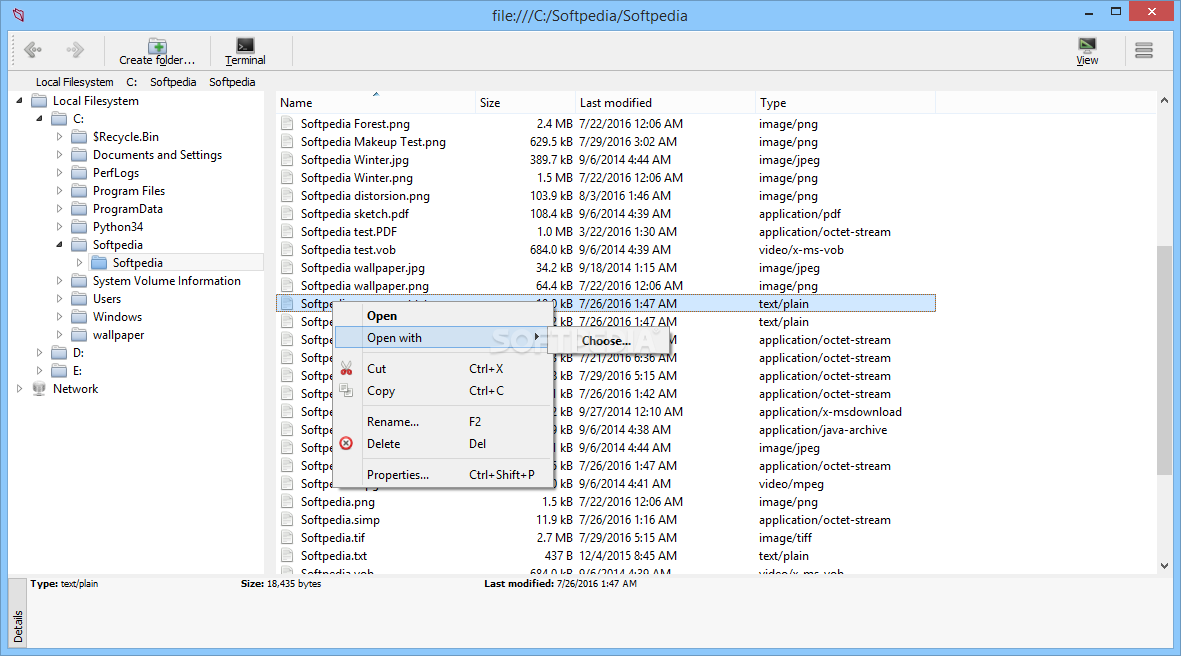Application Octet Stream Pdf
Posted By admin On 12/05/19application/octet-stream |
| MIME Type: application/octet-stream |
| MIME Content Type:Application |
| Associated File Extensions:pkg files, lha files, lzh files, bin files, lrf files, mar files, class files, dylib files, elc files, so files, dmg files, dms files, bpk files, exe files, pgp files, ani files, dll files, deploy files, dist files, distz files, dump files |
Any general, binary format that the server doesn't recognize usually uses this MIME type. Upon receiving this type, most browsers prompt the user and give the user an option to save to disk. RFC1521, Borenstein |
I am trying to open a PDF file with content-type application/octet-stream within Internet Explorer using Adobe Reader version 8 and above. However a File Download.
Compatible with Windows 10, 8, 7, Vista, XP and 2000
Optional Offer for WinThruster by Solvusoft EULA Privacy Policy Terms Uninstall
What Are MIME Types?
A Multi-Purpose Internet Mail Extension (eg. “application/octet-stream”), also known as a MIME, is type of Internet standard originally developed to allow the exchange of different types of data files through e-mail messages. MIME types like application/octet-stream are classified into specific data categories such as Video, Audio, Image, and many more. This categorization provides instructions to your computer or mobile device about how these files should be opened / viewed.
Why Do I Need MIME Types Like application/octet-stream?
Categorizing MIME types like application/octet-stream into a data type such as “Application” allows your e-mail client or Internet browser to display the content as intended. For example, when you attach a digital camera photo file to an e-mail, an Image MIME type will be associated with that file to allow your recipient to view the photograph.
Here's how it works: Web servers (computers that host websites and e-mail) insert a set of MIME instructions into the beginning of a data transmission, such as an e-mail message or webpage, in the following format:
Content-Type: application/octet-stream
[Format Explanation: The MIME type, which in this example is “Application”, is separated by a forward slash (“/”) and followed by a subtype.]

This set of instructions tells your client application, such as an e-mail program (eg. Microsoft Outlook, Apple Mail) or web browser (eg. Google Chrome, Mozilla Firefox), which “player application” should be used to properly display the application/octet-stream content.
Many modern web browsers include built-in components to display common data types such as image players (eg. GIF, JPEG), Adobe Flash Player, Javascript, and many more. Other less-common types of players must be downloaded separately in order to properly display the MIME content.
What Are The Most Common Problems Associated With application/octet-stream?
Sometimes you’ll find that your web browser or e-mail client is unable to properly display your application/octet-stream content. This could be due to one of two reasons:
1. You are missing the proper Application “player software” to display the application/octet-stream content.
2. Your Windows Registry contains an incorrect file extension (eg. XLS, PDF) association with the application/octet-stream MIME type.
How To Fix application/octet-stream Issues
Do I have the application/octet-stream “player application” installed?
The first step in troubleshooting issues with opening application/octet-stream content is to first make sure that you have the correct “player application” installed for this MIME type. Because there can be several (or even hundreds) of related software applications to application/octet-stream, it is very difficult for us to compile a comprehensive list.
Therefore, a key strategy in determining the correct application is to look for clues on what software programs might be related to application/octet-stream. Look at the naming of the subtype for clues about a related program (eg. Word, Excel) or software developer name (eg. Microsoft).
Furthermore, if you’ve been sent MIME type application/octet-stream as an e-mail attachment, look for the file extension of the attached file. This file extension (eg. PKG, LHA, LZH, etc.) can provide you with a clue of what “player application” is associated with this Application MIME. Take a look at our file extension list below to see if there are any clues to finding the right “player application”.
Do I have broken application/octet-stream file associations?
The second step in troubleshooting application/octet-stream issues is making sure that you have correct file associations in the Windows Registry. Installing and uninstalling programs can lead to incorrect file associations with application/octet-stream. Take a look at your Windows Registry settings to ensure that the MIME type is correctly associated with the “player application” and file extension.
WARNING: DO NOT edit the Windows Registry unless you are an advanced computer user with experience editing the Registry. Making an error in editing the Registry can create irreversible damage to your PC.
If you are not comfortable editing the Windows Registry, we highly recommend using an automated registry cleaning program, or taking you computer to a qualified professional.
Since only a few of us received the previous phased update (7.6.2), let me re-mention the goodness that you are going to experience via 7.6.3. We have also: - Fixed the UI bug in iPhone X - Added seek bar support in control centre - Fixed an issue that was causing erroneous pop up for app update to some users - Reduced app size As always keep sharing your feedback at feedback@gaana.com and like always, we would go through each and every one of them, and keep improving the app. 
application/octet-stream |
| MIME Type: application/octet-stream |
| MIME Content Type:Application |
| Associated File Extensions:pkg files, lha files, lzh files, bin files, lrf files, mar files, class files, dylib files, elc files, so files, dmg files, dms files, bpk files, exe files, pgp files, ani files, dll files, deploy files, dist files, distz files, dump files |
Any general, binary format that the server doesn't recognize usually uses this MIME type. Upon receiving this type, most browsers prompt the user and give the user an option to save to disk. RFC1521, Borenstein |
Compatible with Windows 10, 8, 7, Vista, XP and 2000
Optional Offer for WinThruster by Solvusoft EULA Privacy Policy Terms Uninstall
What Are MIME Types?
A Multi-Purpose Internet Mail Extension (eg. “application/octet-stream”), also known as a MIME, is type of Internet standard originally developed to allow the exchange of different types of data files through e-mail messages. MIME types like application/octet-stream are classified into specific data categories such as Video, Audio, Image, and many more. This categorization provides instructions to your computer or mobile device about how these files should be opened / viewed.
Why Do I Need MIME Types Like application/octet-stream?
Categorizing MIME types like application/octet-stream into a data type such as “Application” allows your e-mail client or Internet browser to display the content as intended. For example, when you attach a digital camera photo file to an e-mail, an Image MIME type will be associated with that file to allow your recipient to view the photograph.
Depending on the juice that I am vaping I find that 12-18mg works best for me (I am also a freshie at this vaping game and crave nic). Hey Ajang, I just found a pretty handy thread on another forum that goes through this in a bit of detail. Allow for some further losses, exhalation and non-absorption and 30% is a reasonable estimate. The bit that seems most relevant to you question is here, keep in mind this is US info, not sure if that makes any difference. Least tar and nicotine cigarettes.
Here's how it works: Web servers (computers that host websites and e-mail) insert a set of MIME instructions into the beginning of a data transmission, such as an e-mail message or webpage, in the following format:
Content-Type: application/octet-stream
[Format Explanation: The MIME type, which in this example is “Application”, is separated by a forward slash (“/”) and followed by a subtype.]
This set of instructions tells your client application, such as an e-mail program (eg. Microsoft Outlook, Apple Mail) or web browser (eg. Google Chrome, Mozilla Firefox), which “player application” should be used to properly display the application/octet-stream content.
Many modern web browsers include built-in components to display common data types such as image players (eg. GIF, JPEG), Adobe Flash Player, Javascript, and many more. Other less-common types of players must be downloaded separately in order to properly display the MIME content.
What Are The Most Common Problems Associated With application/octet-stream?
Sometimes you’ll find that your web browser or e-mail client is unable to properly display your application/octet-stream content. This could be due to one of two reasons:
1. You are missing the proper Application “player software” to display the application/octet-stream content.
2. Your Windows Registry contains an incorrect file extension (eg. XLS, PDF) association with the application/octet-stream MIME type.
How To Fix application/octet-stream Issues
Application/octet-stream Download
Do I have the application/octet-stream “player application” installed?
The first step in troubleshooting issues with opening application/octet-stream content is to first make sure that you have the correct “player application” installed for this MIME type. Because there can be several (or even hundreds) of related software applications to application/octet-stream, it is very difficult for us to compile a comprehensive list.
Application/octet-stream Pdf Java
Therefore, a key strategy in determining the correct application is to look for clues on what software programs might be related to application/octet-stream. Look at the naming of the subtype for clues about a related program (eg. Word, Excel) or software developer name (eg. Microsoft).
Furthermore, if you’ve been sent MIME type application/octet-stream as an e-mail attachment, look for the file extension of the attached file. This file extension (eg. PKG, LHA, LZH, etc.) can provide you with a clue of what “player application” is associated with this Application MIME. Take a look at our file extension list below to see if there are any clues to finding the right “player application”.
Do I have broken application/octet-stream file associations?
The second step in troubleshooting application/octet-stream issues is making sure that you have correct file associations in the Windows Registry. Installing and uninstalling programs can lead to incorrect file associations with application/octet-stream. Take a look at your Windows Registry settings to ensure that the MIME type is correctly associated with the “player application” and file extension.
Open Octet Stream File
WARNING: DO NOT edit the Windows Registry unless you are an advanced computer user with experience editing the Registry. Making an error in editing the Registry can create irreversible damage to your PC.
If you are not comfortable editing the Windows Registry, we highly recommend using an automated registry cleaning program, or taking you computer to a qualified professional.